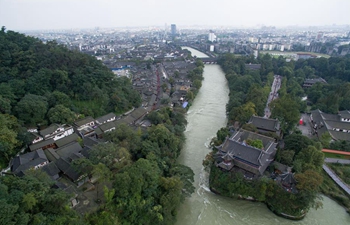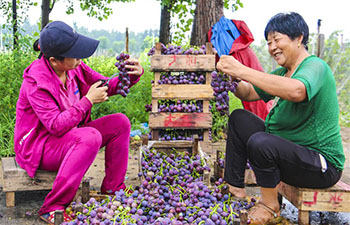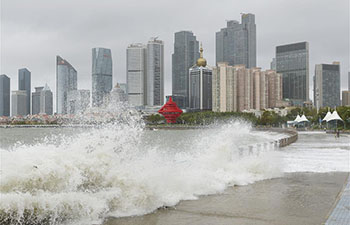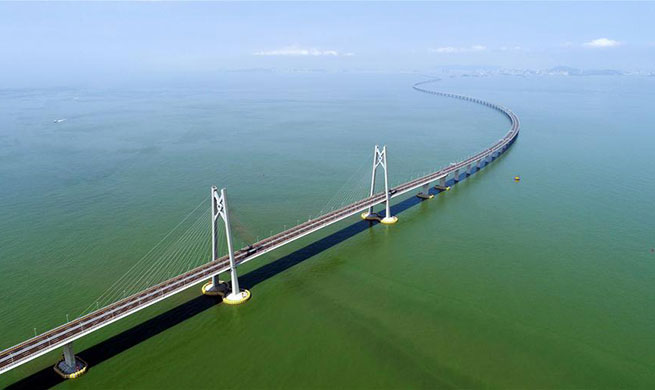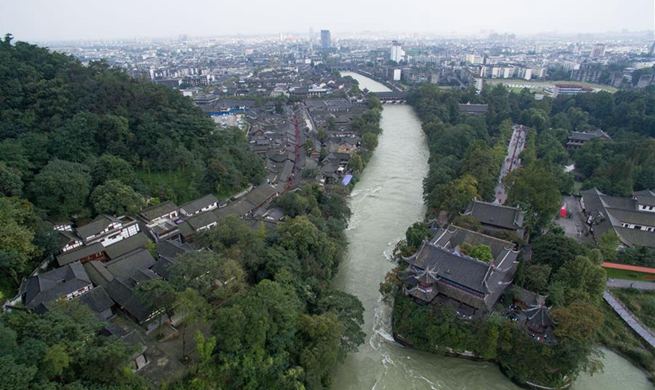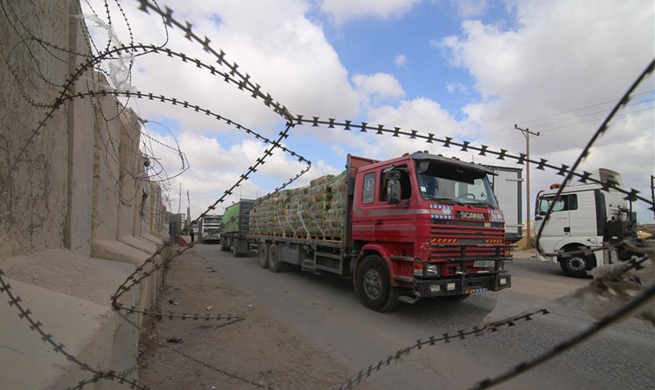BERLIN, Aug. 15 (Xinhua) -- The federal government in Berlin has passed a motion on Wednesday which will allow German farmers affected by a recent drought to grow animal feed in environmentally-protected areas of the country.
"Animals require feed every day. As a consequence, I have made a legislative proposal which enables farmers to use ecological priority areas to grow a mixture of crops for feed purposes," a statement by agricultural minister Julia Kloeckner (CDU) read.
The temporary measure is a response to the extremely hot and dry weather which was recorded throughout parts of Germany this summer and is now anticipated to cause widespread crop failures by the agricultural industry. Farmers have pointed to a shortage of animal feed in particular as posing a risk to their financial solvency.
Citing effects of climate change as witnessed during an ongoing heatwave in Europe, the German Farmers Association (DBV) has downgraded its annual forecast for grain yield for a second time in 2018 from 41 million tonnes to 36 million tonnes. DBV vice-secretary general Udo Hemmerling described the development of German crop output in the current year as the "worst harvest of the century."
Kloeckner (CDU) already announced earlier that her government would not ignore resulting calls for help from farmers. However, federal, as opposed to state-level, funding for agricultural emergencies can only be made available under German law if the adverse event in question is considered to have impacted the entire country. A decision on whether this condition was met during the past months can only be reached when an official harvest report is published at the end of August.
"I am very concerned about the consequences of the drought which farmers in the North and East of Germany in particular will suffer from. At least some assistance and compensation will be derived by farmers from the circumstance that producer prices have risen by around 10 percent compared to last year," Kloeckner said.
The ministry for agriculture noted that mankind had faced natural catastrophes and extreme weather patterns since biblical times, adding that Germany remained a relatively safe country for agricultural production by global standards. Nevertheless, the ministry warned that domestic weather risks were set to increase in coming years as a consequence of climate change.
"Extremer weather patterns like snap freezes, heat, floods and storms can cause significant and long-lasting damage to the German agricultural sector within short periods of time. These events destroy cultivated plants and lead to crop failures," the ministry for agriculture wrote on its website.
Commenting on the latest heatwave which gripped Germany and much of western Europe, the Potsdam Institute for Climate Impact Research (PIK) recently highlighted that temperatures which were still considered unusual for July could become normality in Europe within the coming decades.
"In Germany, average temperatures have already risen by 1.4 degrees since the industrial revolution," PIK researcher Fred Hattermann told the press. Higher average temperatures caused by greenhouse gas emissions were hereby likely to lead to more extreme heatwaves in the future.
